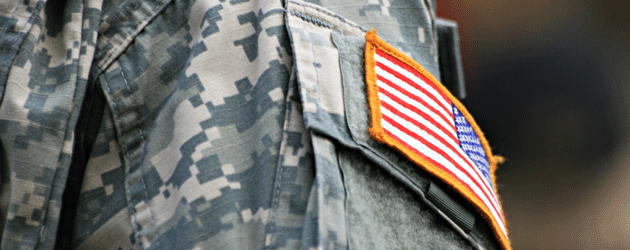
Chris Mosier, a transman, shows passion and dedication to help the victims of hurricane Sandy and the lgbt homeless youth of the Ali Forney Center.
By: Dan Woog*/Special to TRT–
These days, if you can run, you can raise funds. Every weekend, it seems, there are road races to cure breast cancer, build schools in impoverished African villages, and do just about every other good deed imaginable. Fundraising races are impressive affairs, complete with corporate sponsors, water stations and gushing publicity.
When Chris Mosier decided to run to raise money, though, he did it alone. The decision seemed apt. He was running to support homeless LGBT teenagers, and few populations are as lonely as that.
Chris’s run earlier this month – 35.6 miles, a loop around the entire perimeter of Manhattan – benefited the Ali Forney Center. A shelter and drop-in center offering food, showers, clothing, medical care, and mental health and substance abuse services to thousands of youngsters annually, it was destroyed by Hurricane Sandy. Flood waters from the Hudson River demolished computers, office equipment, refrigerators and food.
Chris was never homeless himself. But the plight of teenagers cast out of their families – then left to battle for survival, at the same time trying to figure out who they are and where they fit into the world – resonated deeply.
As a child growing up near Chicago, he played team sports. He always knew on some level he did not fit society’s expectations of gender, but he did not have the vocabulary to express what he] felt.
Even in college, Chris says, “I didn’t know about the LGBT community. I was oblivious to it, and to any kind of self-awareness.”
About 10 years ago though, Chris finally met some transgender people. Gradually, that self-awareness grew.
Chris moved to New York and began a career in higher education. Chris identified as “queer,” and played on men’s softball teams.
But Chris also ran and bicycled on teams and in events as a female. “I delayed my transition because of sports,” Chris says. “I did well as a woman, and wondered how competing as a man would affect things. I wear Spandex. I’m in very body-conscious sports. Being an athlete was an important part of my identity, and I had a lot of questions.”
Those worries proved groundless. Chris was accepted quickly during and after his transition. He’s spent the last five years competing in road races and triathlons, and serves as a coach and ambassador for the Empire Triathlon Club and Team Aquaphor.
Like many members of New York’s LGBT community, Chris had heard of the Ali Forney Center. As he learned of its devastation during the hurricane – and saw other destruction while running in local parks – Chris vowed to help.
As vital as its work is, Ali Forney is only a drop in the bucket. There are an estimated 3,800 homeless youth in New York, Chris says. Forty percent are LGBT. The center provides only 250 beds. Still, it’s something.
“I don’t have the money to get Ali Forney back on its feet myself. But I could raise a little bit,” Chris says. “And if I raised awareness, too, that might lead to something.”
He chose a date – Dec. 1 – and spent three weeks spreading the word via social media. Donors could contribute any amount; suggestions included $32 (a dollar for every mile he figured he’d run), $50 (a dollar for every kilometer), or whatever else anyone wanted.
He also gathered prizes to raffle off to contributors.
Chris started and finished at the United Nations. And he started and finished alone.
“A lot of teammates and friends offered to join,” he notes. “But it was important for me to do this by myself.”
He wore no headphones; he just ran, and reflected. At one point he stopped at the Staten Island Ferry Terminal to warm his hands. “I realized, if I was homeless I couldn’t just do that,” he says. “I’d have to really think about things like where I could use the bathroom.” He carried a bit of food, but dropped some along the way. “If I was homeless, losing that food would have meant a lot more.”
Chris’ run took 5 hours and 18 minutes. He felt pretty good until Mile 25. At Mile 30, he really started to feel the effects. But – like homeless youth with no other options – he kept going.
When it was over, he had an hour to shower, and get to work.
The Ali Forney Center had no idea who Chris was. They still might not. That’s not the point, he says. “This isn’t about me. It’s about getting the word out, and helping an organization that helps kids who need help.”
Chris continues to get the word out. And he continues to accept donations. The website is www.aliforneycenter.org. Search there for “Mosier” and give what you can.
*Dan Woog is a journalist, educator, soccer coach and gay activist. His latest book is We Kick Balls: True Stories from the Youth Soccer Wars. He can be reached care of this publication or at OutField@qsyndicate.com.
EDITOR’S NOTE — UPDATED: Chris Mosier contacted The Rainbow Times. Chris requested the change of pronouns and we, at The Rainbow Times, gladly changed them to what he had asked the author to be. Please remember that for stories that read “Special for TRT” the reader should send comments and complaints to the author’s e-mail, usually found at the end of each story. However, we are always a source to try to resolve issues in a manner that is correct and respectful for all. Thank you, everyone, for your feedback. We appreciate it. Thank you, Chris, for contacting us and good luck!








Can the editors of this page, please correct Chris’ pronouns? Even when referring to him as a child, you should be using ‘he’ pronouns. I know Chris himself has already made that request, so I wanted to back that request up, and mention that as a lgbTq media source, you should respect that. It is unacceptable that your paper has not done so already.
Please send your requests directly to the editor at editor@therainbowtimesmass.com. Also, please do not forget to send in your full name and phone number, for verification purposes. Someone will address the concerns promptly with the understanding that this is a story from a syndicated company, not an actual reporter from The Rainbow Times. Thank you.
This sounds like hysteria. So the guy is a man now. I think the writer makes it clear, but to refer to him to his past, is he not ever supposed to say he was a little girl as in “she knew she was trapped” so that other people like me who are allies understand better the transition. I never thought there was anything wrong with the pronouns because I don’t see that anyone was trying to insult Chris. He is a man that loves to give and got to where he is by learning about himself in the process. I’d love to hear what Chris has to say about this story and what the writer has to say as well. You know, at least some media covers trans issues. I always send my nephew here because there’s not much out there. So, I’m not pointing fingers so promptly. If the pronouns were changed in that paragraph, it seems to me, that a lot of people like me would be very confused by what the writer was talking about. Just my thoughts, not trying to offend anyone trans or glb ever.
It would be my preference that the author refer to me as “he” in all cases. He can say “as a girl,” but I use he/him/his in all cases. The author never asked. I think it is disrespectful, and I’ve discussed it with Dan after the article first came out. I would love for it to be changed.
Hi Chris, Thank you for contacting us. We appreciate it hearing it from you. We will definitely change it. It is customary, for The Rainbow Times’ reporters and columnists to understand the interviewee’s pronoun preference. We want to apologize to you for the fact that Dan did not change it. He does not work for us, but we will change it. Again, thank you for letting us know and we’re proud of the great work you are doing for so many. It takes a special person to do so. Good luck! Nicole Lashomb, TRT’s Editor-in-Chief
Chris uses he/him/his and I’m disappointed the steps haven’t been taken to respect his identity by using the correct pronouns. If the community doesn’t take these steps, how can we expect mainstream society to know what to do?
Let’s do some work.